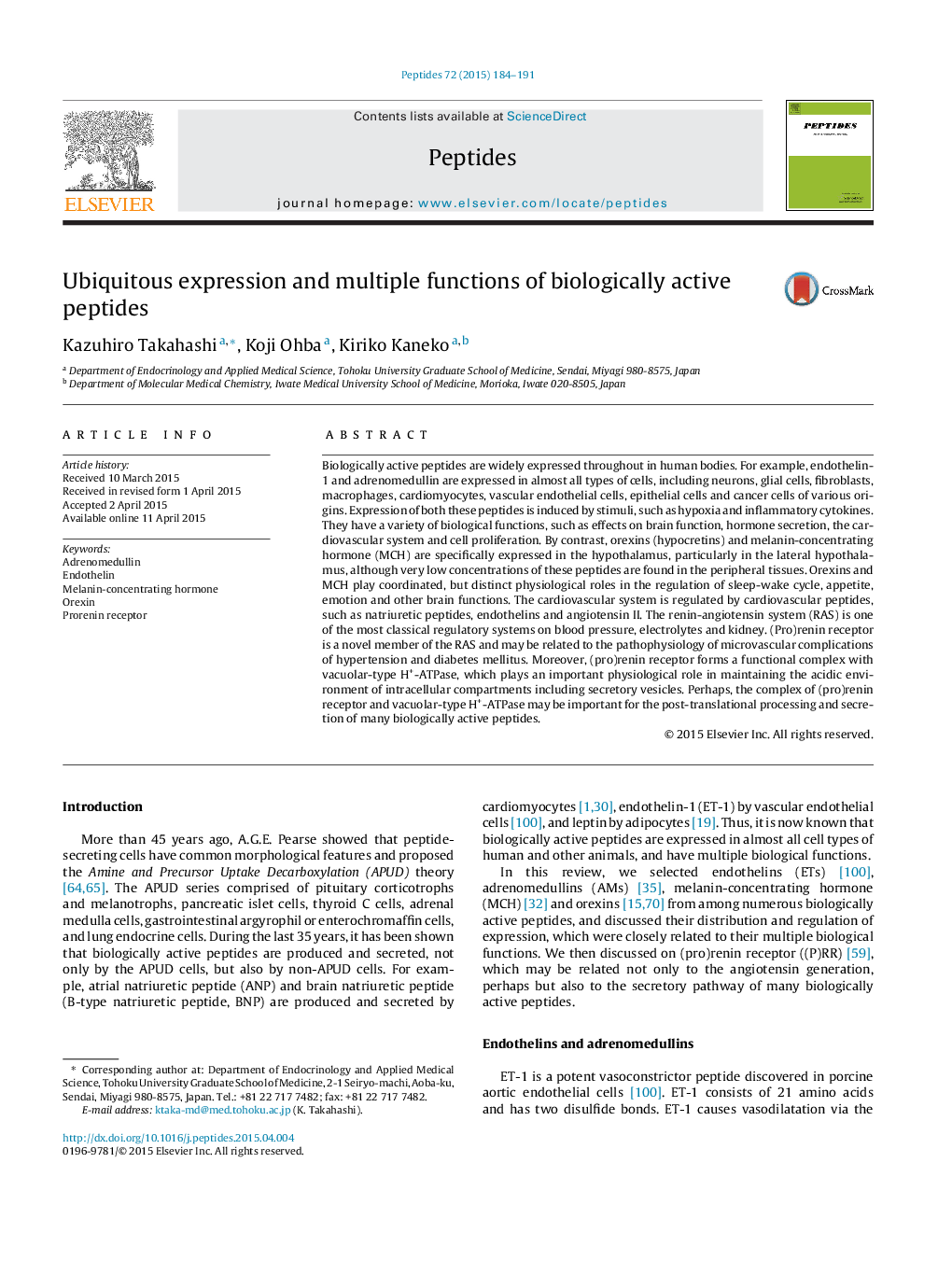| کد مقاله | کد نشریه | سال انتشار | مقاله انگلیسی | نسخه تمام متن |
|---|---|---|---|---|
| 2005859 | 1541707 | 2015 | 8 صفحه PDF | دانلود رایگان |
• Biologically active peptides and their receptors are ubiquitously expressed.
• Endothelin-1 and adrenomedullin are expressed in almost all types of cells.
• Endothelin-1 and adrenomedullin may act in environmental emergency.
• MCH and orexins, mostly expressed in the lateral hypothalamus, regulate appetite and sleep.
• (Pro)renin receptor may be related to the secretory pathway of many biologically active peptides via the function of V-ATPase.
Biologically active peptides are widely expressed throughout in human bodies. For example, endothelin-1 and adrenomedullin are expressed in almost all types of cells, including neurons, glial cells, fibroblasts, macrophages, cardiomyocytes, vascular endothelial cells, epithelial cells and cancer cells of various origins. Expression of both these peptides is induced by stimuli, such as hypoxia and inflammatory cytokines. They have a variety of biological functions, such as effects on brain function, hormone secretion, the cardiovascular system and cell proliferation. By contrast, orexins (hypocretins) and melanin-concentrating hormone (MCH) are specifically expressed in the hypothalamus, particularly in the lateral hypothalamus, although very low concentrations of these peptides are found in the peripheral tissues. Orexins and MCH play coordinated, but distinct physiological roles in the regulation of sleep-wake cycle, appetite, emotion and other brain functions. The cardiovascular system is regulated by cardiovascular peptides, such as natriuretic peptides, endothelins and angiotensin II. The renin-angiotensin system (RAS) is one of the most classical regulatory systems on blood pressure, electrolytes and kidney. (Pro)renin receptor is a novel member of the RAS and may be related to the pathophysiology of microvascular complications of hypertension and diabetes mellitus. Moreover, (pro)renin receptor forms a functional complex with vacuolar-type H+-ATPase, which plays an important physiological role in maintaining the acidic environment of intracellular compartments including secretory vesicles. Perhaps, the complex of (pro)renin receptor and vacuolar-type H+-ATPase may be important for the post-translational processing and secretion of many biologically active peptides.
Journal: Peptides - Volume 72, October 2015, Pages 184–191
